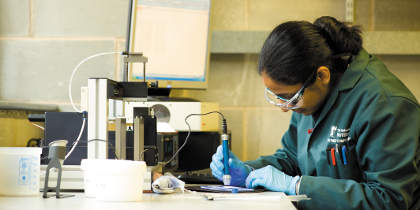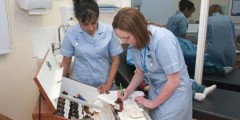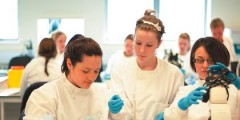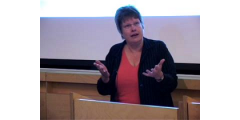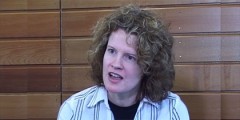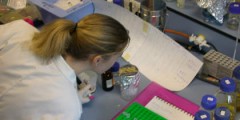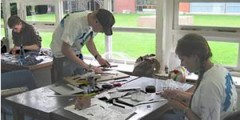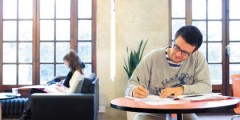An inverse method of teaching specialised subjects: decomposing a representative example to sustain analysis and interaction of details
January 16, 2007
Dragos Axinte: “The project discusses an example of teaching specialist manufacturing processes by identifying a ‘representative product’ (RP) from which key manufacturing processes can be isolated, analysed and interconnected to enable the understanding of how complex entities, i.e. products, are generated and made functional. “Teaching specialist manufacturing subjects is nowadays a challenge due to fast …
An approach to understanding and developing undergraduate students’ research strategies
September 12, 2006
Mark Bradley, Christian Haase, Helen Hill, Katharina Lorenz, Violeta Sotirova and Lloyd Weeks: “Scholarship at university incorporates a number of practices different from the study techniques students develop to succeed at school. A key aim of this cross-disciplinary project is to understand and develop academic learning and critical thinking among our students, and to explore …
DysPEL: Dyslexia and Practice Environment Learning in Nursing
March 31, 2006
Fiona McCandless-Sugg, Jo Sanderson-Mann and Heather Wharrad: Background and Overview “Pre-registration Nursing Diploma courses require that 50% of student learning takes place in the classroom and the other 50% is achieved through practice experience in the clinical placement. There is little evidence about how dyslexia affects nurses and student nurses in workplace learning, and what …
Using laboratory classes to teach experimental design
John Harris, Martin Luck and Alan Waterfall: Background “In previous years Animal Physiology students have carried out set laboratory experiments to illustrate the effects of exercise on cardiovascular responses. These were prescriptive laboratory sessions, each resulting in a written report. The teaching team felt that many students were completing these with insufficient thought and without …
“The bright young things and their parties” – eTeaching the Greek symposium as exploration of the digital classroom
January 17, 2006
Katharina Lorenz: “The use of information and communication technologies (ICT) has become a vital part of teaching and learning in Higher Education. But while the technology to design virtual learning becomes more sophisticated, teaching strategies which cater for the needs of the distant learner still await refinement. The digital classroom enhances the learning experience, facilitating …
Jude Carroll on plagiarism
Video >> Jude Carroll: “And what’s interesting about the question “Are any of these people plagiarists?” is actually that question is “What do you mean by the words that are in this definition?”. And one of the things that I think is very interesting is that the definition of plagiarism is not a platonic ideal …
The good, the bad and the ugly: students’ experiences of group projects
Nicola Gray: “Background: Group projects have the potential to engage a large cohort of students in exercises that complement other aspects of the course. Effective use of resources is an important driver for course organisers. For pharmacy students, the importance of team-working in health care means that these exercises could provide skills to benefit their …
Practical molecular biology for visually impaired students
October 29, 2005
This illustrated report shows the simple adjustments that allow Emily (who has cone-rod dystrophy giving her very little detailed vision but some colour perception) to carry out her own lab work. Each Visually Impaired (VI) student has specific needs but adjustments here may be of use to them. This was originally written in 24 point …
The “Tour de Pasenville”: an induction exercise
June 27, 2005
Tim Heath spoke to Kate Exley about the “Tour de Pasenville”, a cross-year design project modelled on the “Tour de France”, which aims to introduce new students to key concepts in design and each other in a friendly competitive exercise that runs in the second week of Semester 1. This is an innovative School based …
Creativity and criticism: spotting a gap and motivations to change
Peter Howarth: “I joined the Department in 2000 and as part of my teaching, began a module on Modern Poetry. I realised that the students had to develop an understanding of the shape and form of poetry, and how form affects meaning; students read poetry as if they were reading a novel, and when asked …

